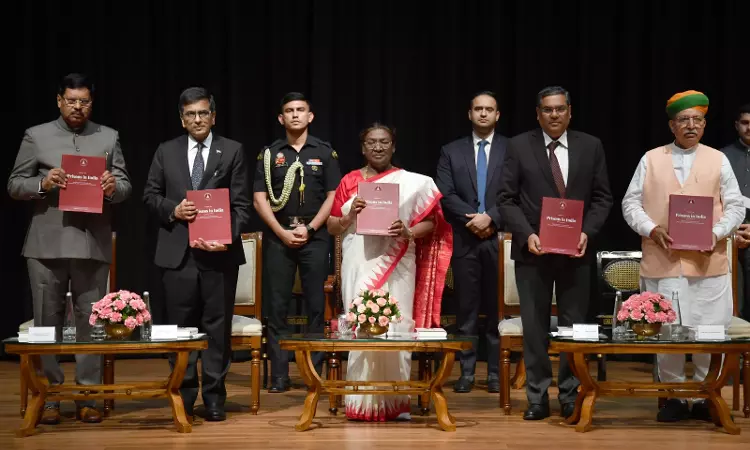CJI Chandrachud Credits President Murmu's 2022 Constitution Day Speech For Inspiring Supreme Court Report On Prison Reforms
Amisha Shrivastava
5 Nov 2024 7:37 PM IST

Next Story
5 Nov 2024 7:37 PM IST
Chief Justice of India DY Chandrachud today credited President Droupadi Murmu's 2022 Constitution Day address for igniting the conversation that led to the development of the report, Prisons in India: Mapping Prison Manuals and Measures for Reformation and Decongestion.“I must take this opportunity to thank the honourable President not only for accepting our invitation to attend this...
